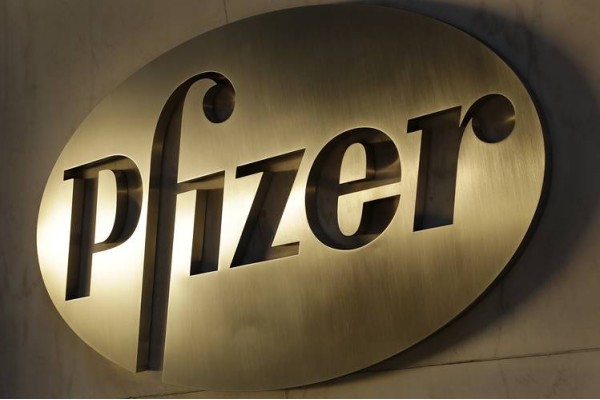Pfizer Inc. announced a positive outcome from today’s U.S. Food and Drug Administration (FDA) Gastrointestinal Drugs Advisory Committee (GIDAC) meeting. The GIDAC met to discuss Pfizer’s supplemental New Drug Application (sNDA) for XELJANZ® (tofacitinib), which is currently under review by the FDA, for the treatment of adult patients with moderately to severely active ulcerative colitis (UC).
“Today’s discussion underscored the significant unmet need that exists for people living with ulcerative colitis, a disease that is often debilitating and difficult to control. We are encouraged about the positive outcome of today’s GIDAC meeting,” said Michael Corbo, Chief Development Officer, Inflammation & Immunology, Pfizer Global Product Development. “If approved, tofacitinib will be the first Janus kinase inhibitor and the first oral therapy for adults living with moderately to severely active ulcerative colitis. We look forward to working with the FDA as it completes the review of our pending application.”
The GIDAC voted on two dosing questions related to the use of the 10 mg twice-daily (BID) dose beyond the eight week induction period. First, the Committee voted unanimously (15-0) in favor of the extension of the use of tofacitinib 10 mg BID from eight to 16 weeks of induction in adult patients who have not achieved adequate therapeutic benefit by Week 8. Second, the Committee voted unanimously (15-0) in favor of 10 mg BID as continuous maintenance treatment for adult patients with an inadequate response, loss of response or intolerance to tumor necrosis factor (TNF) blocker therapy.
The submitted sNDA for adult patients with moderately to severely active UC included a proposed dosing regimen of tofacitinib 10 mg BID for eight weeks of induction, followed by tofacitinib 5 mg BID for maintenance. It also included the proposed option to extend the induction period by an additional eight weeks (for a total of 16 weeks), as well as proposed consideration for the use of tofacitinib 10 mg BID for maintenance therapy in patients with an inadequate response, loss of response, or intolerance to TNF blocker therapy.
The third question the Committee voted on related to a post-marketing efficacy study comparing a tofacitinib 10 mg BID continuous dosing regimen versus a regimen of tofacitinib 10 mg BID induction and 5 mg BID as maintenance in this patient population. The Committee voted 8-7 against conducting this study.
The role of the GIDAC is to provide recommendations to the FDA; however, the recommendations are not binding. FDA’s decision on whether or not to approve tofacitinib for UC is expected by the Prescription Drug User Fee Act (PDUFA) date in June 2018.
About Ulcerative Colitis
UC is a chronic and often debilitating inflammatory bowel disease that affects millions of people worldwide.1,2 Symptoms of UC can include chronic diarrhea with blood and mucus, abdominal pain and cramping, and weight loss.3 While the exact cause of UC is unknown, it is believed to be the result of complex interactions between multiple factors that include genetic predisposition and an exaggerated immune response to a microbial trigger.4 UC can have a significant effect on work, family and social activities.5
About Tofacitinib
Tofacitinib is a Janus kinase (JAK) inhibitor. It is not currently approved for the treatment of UC. Applications for tofacitinib for the treatment of moderately to severely active UC are currently under review by the U.S. FDA and the European Medicines Agency (EMA).
As the developer of tofacitinib, Pfizer is committed to advancing the science of JAK inhibition and enhancing understanding of tofacitinib through robust clinical development programs in the treatment of immune-mediated inflammatory conditions.
INDICATIONS
Rheumatoid Arthritis
- XELJANZ/XELJANZ XR (tofacitinib) is indicated for the treatment of adult patients with moderately to severely active rheumatoid arthritis who have had an inadequate response or intolerance to methotrexate. It may be used as monotherapy or in combination with methotrexate or other nonbiologic disease-modifying antirheumatic drugs (DMARDs).
- Limitations of Use: Use of XELJANZ/XELJANZ XR in combination with biologic DMARDs or with potent immunosuppressants such as azathioprine and cyclosporine is not recommended.
Psoriatic Arthritis
- XELJANZ/XELJANZ XR (tofacitinib) is indicated for the treatment of adult patients with active psoriatic arthritis who have had an inadequate response or intolerance to methotrexate or other DMARDs.
- Limitations of Use: Use of XELJANZ/XELJANZ XR in combination with biologic DMARDs or with potent immunosuppressants such as azathioprine and cyclosporine is not recommended.
IMPORTANT SAFETY INFORMATION
BOXED WARNING: SERIOUS INFECTIONS AND MALIGNANCY
SERIOUS INFECTIONS
Patients treated with XELJANZ/XELJANZ XR are at increased risk for developing serious infections that may lead to hospitalization or death. Most patients who developed these infections were taking concomitant immunosuppressants, such as methotrexate or corticosteroids.
If a serious infection develops, interrupt XELJANZ/XELJANZ XR until the infection is controlled.

 1,049
1,049


